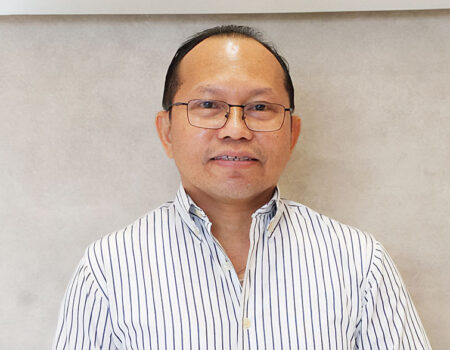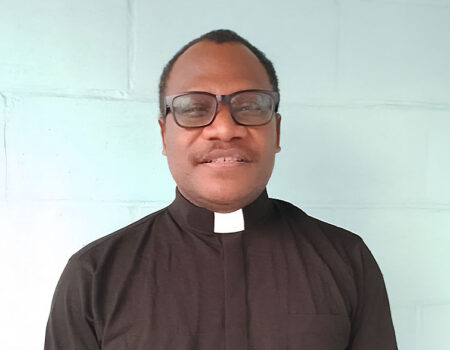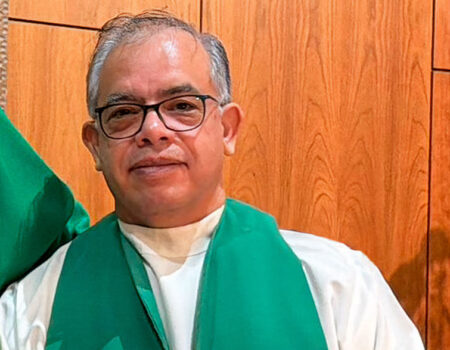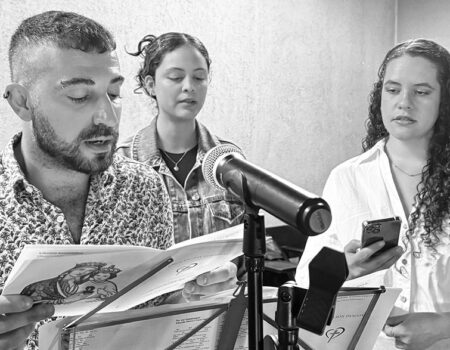Who am I for?
Monday March 31, 2025
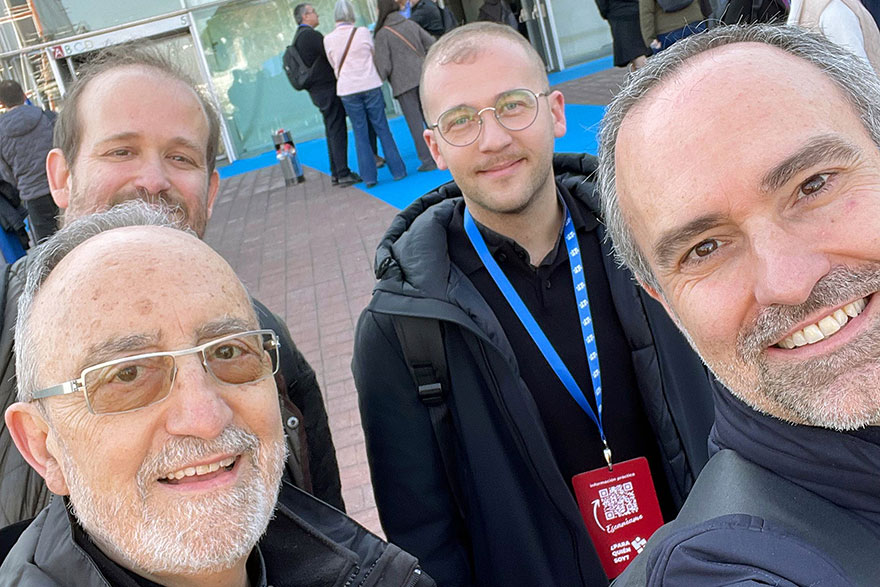
‘Who am I for? What am I doing here? If only I knew what you wanted of me.’ This is the refrain of the hymn of the National Vocations Congress held last February in Madrid, organised by the Spanish Episcopal Conference. ‘Who am I for? What am I doing here? If only I knew what you wanted of me. Who am I for? You have called me by my name. Tell me, God, what is your dream path?’
When I was invited to take part in the Vocations Congress, I imagined what I think most of the people who heard about it imagined, that it was a congress to promote vocations to the priesthood or the consecrated life. I thought that perhaps they believed that my work as a communicator and my creativity could be put to the congregation’s service to spread the message at a time of scarce religious vocations. As on other occasions, I gladly accepted the invitation.
The preliminary phase. After registering, I received an email indicating the steps to follow in the pre-conference. Pre-conference! … with meetings, work material, surveys … this seemed more serious than I imagined and that for the Episcopal Conference it was quite important.
That vision of a vocation only to religious life changed completely when I got down to work and began to read the working document. It spoke of ‘life as a vocation’: ‘the Lord never stops calling and, therefore, the Christian life is a vocation, even more, life is a vocation’. Every idea I read caught my attention more. Furthermore, I realised that this congress was not intended to talk, debate, or launch ideas; it was a concrete work proposal: ‘Cultivating life as a vocation so that a “vocational culture” emerges’.
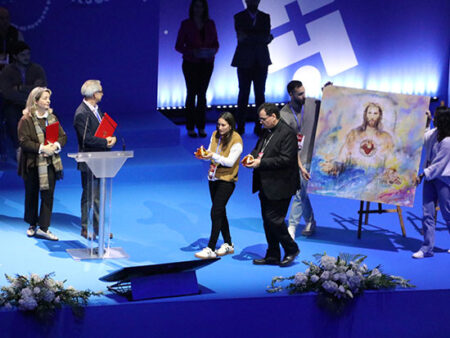
Outwards. The Spanish Church is endeavouring to make us question why we are here, what we are doing here and, as the conference slogan says, ‘Who am I for?’. It is presented as a contrast to today’s cultural approaches. Where the question is ‘Who am I?’, from an individualistic point of view, where freedom is understood as those rights that I have because I am free, with a vision towards the self and not, as the Church proposes, the freedom to be able to make decisions and actions towards others. The culture of vocation proposed by the Episcopal Conference proposes to change the thinking that freedom is for me, for that of dedication and the idea of ‘being for others’.
Pope Francis sent a message to the conference in which he elaborated on this idea: ‘We waste time asking ourselves, ‘But who am I?” We don’t get to the fundamental question: “For whom am I?” You are for God, no doubt. But He wanted you to be for others, too.’
The moment had arrived. On the first day of the conference, there was a very festive atmosphere. Priests, nuns, lay people, monks, families… very good harmony, very communal. All of us who were there had the same objective. We felt in communion. We knew who had called us together.
The opening speech begins, and, indeed, the proposal is clear. The aim is to propose an alternative approach to current social culture. For example, the conference warned of the danger of becoming complacent in a society based on values. Values change with the times and cultural moments of society. They are not binding, they can be followed or not, and they annul life as a vocation because there is no purpose. Nowadays, even in religious schools, the teachings of Jesus’ love of the Gospel have been replaced by the United Nations’ objectives, developing a pastoral of values instead of a pastoral of Christ.
Life is a gift. Life is to be filled with life. We were given a name at birth, and God calls us by our name. We are not an ID card or a Social Security number. We have a face. We are called to follow Jesus, to turn the gift into action. Life is a gift; life is a vocation; therefore, we are a gift. A vocation is a gift and a task, whether as a priest, nun, or layperson.
Vocation offers us a horizon of meaning, a ‘ compass, a GPS’. Furthermore, it is a response that requires concreteness and that is not a single ‘Yes’ but a path of ‘Yeses’. It is a process; it is not a ‘here and now’; it is a discovery that brings out our authentic Self, but it is meant to be lived in a community.
As we are seeing, it is not easy to get to know and develop one’s vocation. That is why a culture of vocations is essential. An environment has to be created. It is not a question of organising events, vocational days, talks and conferences. It is something that should permeate our lives, our institutions, our families, our work groups… so that a vocational approach is fostered in every environment. For this, listening is essential, more than offering. In this way, individual vocations can be embraced as each person feels and experiences them. Each person listens to their call and puts their gifts into practice.
Once the vocation is recognised, it’s time to plan the mission as the culmination of this vocational process. This is how we arrive at the concrete. I adored the mission definition presented to us: ‘Mission is the passion to evangelise.’
’Duc in altum’, [head] to the heights, to the depths, to the widths…’. Who am I for? The answer is clear: “I am a mission on this earth”.
From on high. This was a conference of continuous questioning—an excellent examination of conscience about our being and doing. As I said before, a vocation is a gift and a task. Our task is the mission. The mission is the passion to evangelise. But… why evangelise? Because we are not just another religion, because we are missionaries. We are the arms of God to tell what we have seen and heard. The figure of the evangeliser is that of a person who knows they are an instrument of God, those arms. In the words of Benedict XVI, ‘A humble worker…’ Furthermore, a person who acts coherently demands the best of themselves and others and thinks big and creatively. We were invited to forge creative minorities, with a mandate based on Benedict XVI’s words: ‘It is the creative minorities who determine the future.’
We were also reminded that Mary is the evangelising Mother, that Christ gave her to us. Oh! And that ‘mission is not a human project’.
Let’s get to work. The conference was developed with these ideas in four itineraries: Word, Mission, Community, and Subject. In this way, we went from the general vision of vocation to the concrete fields of vocation.
It was fascinating to hear ideas and concepts about mission. Obviously, for the group of MSC who went to the congress, it was the topic that most attracted us. In relation to vocation and that sense of mission that has to put gifts into action, we felt very aligned with the proposed vision of mission. Our General Chapter of 2023 concluded with an idea that, for us, was an identity: ‘You are the mission’. At the conference, we were told: ‘Mission is the heart of my identity.’ This means that if mission is vocation put into practice, my vocation is my identity, my vocation is mission, and as a vocational family, which is the Church, God calls us from baptism. All baptised persons are called to find their vocation and put it into practice with the mission that God has given them through their gifts. Let’s turn dreams into challenges. It doesn’t matter if there are few of us; what matters is that we are strong, with deep roots. This is not the time to give up! It is time to foster the culture of vocation, to accompany it and to take care of it. We were baptised in Spirit and fire. It is up to us to spread the Spirit and bring the fire everywhere. As Monsignor Argüello, president of the Episcopal Conference, said in his Homily of sending: ‘’Duc in altum’, [head] to the heights, to the depths, to the widths…’
Who am I for? The answer is clear: “I am a mission on this earth”.
Javier Trapero


